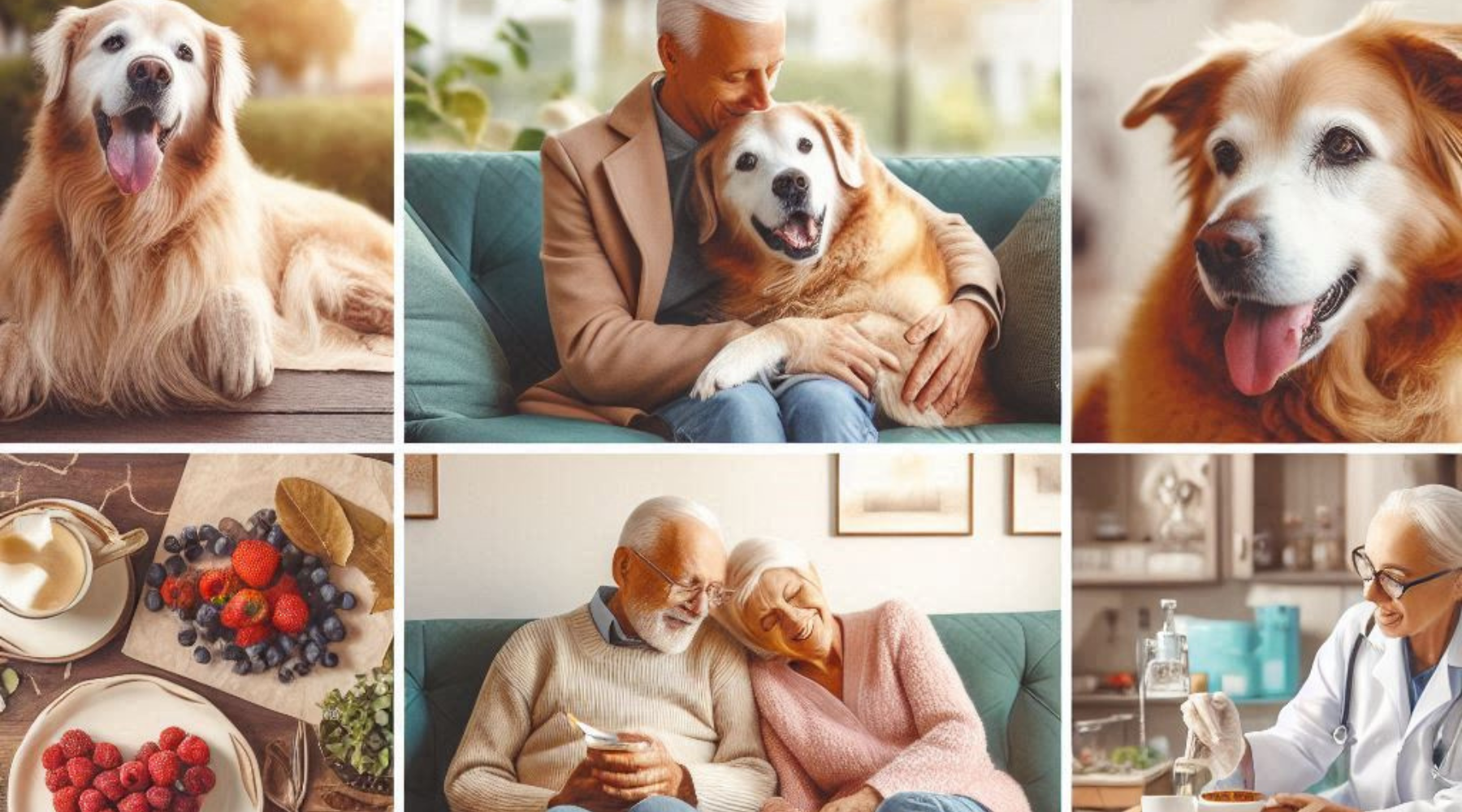
Senior Dog Care: Ensuring a Happy and Healthy Golden Years
As our beloved canine companions age, their needs change, requiring adjustments in diet, exercise, and overall care to ensure their well-being and happiness. Senior dogs, just like humans, deserve a comfortable and fulfilling life during their golden years. In this article, we'll explore the essential aspects of senior dog care, from diet and exercise to recognizing and managing age-related health issues, all aimed at enhancing the quality of life for our aging furry friends.
Adjusting Diet and Exercise for Older Dogs:
One of the most crucial aspects of senior dog care is maintaining a proper diet and exercise routine tailored to their age and health status. As dogs age, their metabolism slows down, and they may become less active, leading to weight gain and potential health problems. Therefore, it's essential to adjust their diet to meet their changing nutritional needs.
Switching to a senior-specific dog food formula can provide the right balance of nutrients while being easier on their aging digestive system. These formulas often contain lower calories to prevent weight gain, higher levels of joint-supporting nutrients like glucosamine and chondroitin, and supplements like omega-3 fatty acids for brain health and mobility.
In terms of exercise, while senior dogs may not have the same energy levels as their younger counterparts, they still benefit from regular physical activity. However, it's crucial to tailor the intensity and duration of exercise to their individual needs and abilities. Gentle activities like short walks, swimming, or low-impact play can help maintain muscle tone, joint flexibility, and mental stimulation without causing undue stress on aging bodies.
Recognizing and Managing Age-Related Health Issues:
As dogs age, they become more susceptible to various health issues, including arthritis, dental problems, cognitive decline, and organ dysfunction. Regular veterinary check-ups become even more critical during this stage of life to catch and address these issues early on.
Arthritis is a common ailment in senior dogs, causing stiffness, pain, and reduced mobility. Providing comfortable bedding, gentle exercise, and supplements like glucosamine and fish oil can help alleviate symptoms and improve joint health.
Dental health is another area of concern, as older dogs may develop gum disease, tooth decay, or tooth loss. Regular dental cleanings and at-home dental care can prevent these issues and ensure your senior dog's comfort and well-being.
Cognitive dysfunction syndrome (CDS), similar to Alzheimer's disease in humans, can affect older dogs' mental faculties, leading to disorientation, changes in behavior, and altered sleep patterns. While there's no cure for CDS, environmental enrichment, mental stimulation, and certain medications can help manage symptoms and improve quality of life.
Enhancing the Quality of Life for Senior Dogs:
In addition to addressing their physical and medical needs, enhancing the quality of life for senior dogs involves providing them with love, companionship, and a supportive environment. Simple gestures like spending quality time together, gentle grooming sessions, and providing comfortable resting areas can make a world of difference to an aging pup.
Senior dogs may also benefit from modifications to their living environment to make it more accessible and comfortable. This can include adding ramps or steps to help them navigate stairs or elevated surfaces more easily, providing non-slip surfaces to prevent falls, and adjusting the height of food and water bowls to reduce strain on their necks and backs.
Lastly, maintaining a consistent routine and minimizing stressors can help senior dogs feel safe, secure, and at ease in their surroundings. Changes in routine or environment can be particularly challenging for older dogs, so keeping things predictable can help alleviate anxiety and promote overall well-being.
Disclaimer:
It's important to note that while the information provided in this article is based on general principles of senior dog care, every dog is unique, and individual needs may vary. Always consult with your veterinarian for personalized advice and guidance regarding your senior dog's health, diet, and care regimen.
Conclusion:
Ensuring a happy and healthy golden years for our senior dogs requires a combination of proper nutrition, regular exercise, vigilant medical care, and lots of love and attention. By adjusting their diet and exercise routine, recognizing and managing age-related health issues, and enhancing their quality of life through companionship and a supportive environment, we can help our furry friends enjoy their golden years to the fullest.



Leave a comment
This site is protected by hCaptcha and the hCaptcha Privacy Policy and Terms of Service apply.